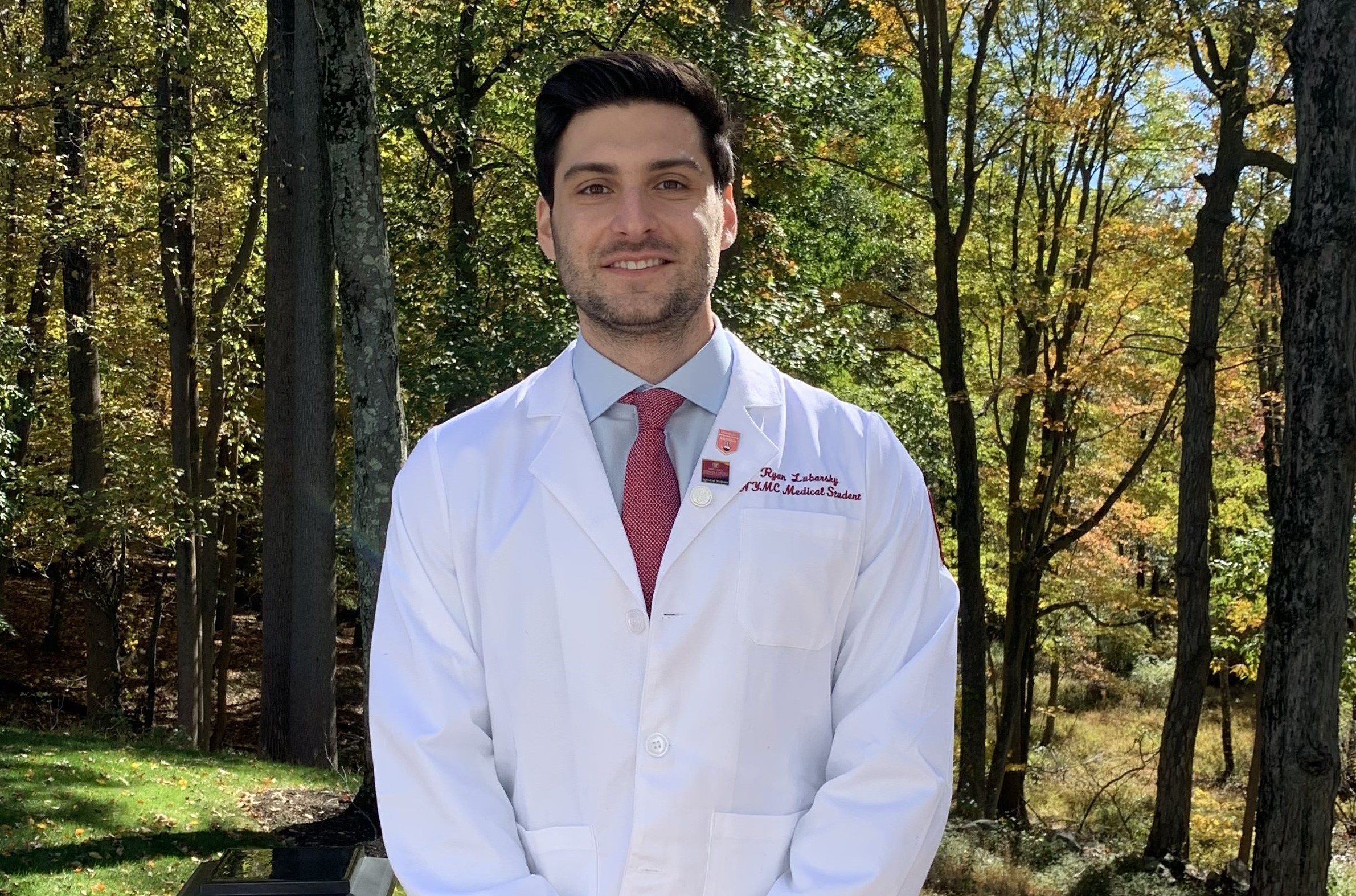Prostate Cancer Guidelines Fall Short for High-Risk Black Americans
Family History of Prostate Cancer and Interest in Combating Health Inequity Led Ryan Lubarsky, SOM Class of 2024, To Pursue Research Project

Despite a two-fold higher death rate, Black American men are disproportionally excluded from research informing treatment guidelines for prostate cancer, according to a new study by New York Medical College students and faculty recently published in Urology.
“Currently, health care providers rely heavily on prostate cancer screening and treatment guidelines from the National Comprehensive Cancer Network (NCCN), which are based on outcomes from approximately 1,000 clinical trials. Yet when we analyzed whether those trials included patients comparable to the demographic makeup in the U.S. and more specifically Black Americans with their disproportionate mortality burden, we found two very discouraging results,” says Ryan Lubarsky, SOM Class of 2024, lead author on the study.
According to the study, while the proposed “target” representation in clinical trials for Black Americans should have been approximately 27 percent, they accounted for just 12.8 percent of total patients. In two-thirds of the clinical trials, demographic data was excluded completely.
Lubarsky’s interest in researching this topic was prompted during his clerkships at NYC Health+ Hospitals/Metropolitan and NYC Health + Hospitals/Lincoln, two public hospitals providing care to some of the most under-resourced and vulnerable populations in the country.
“Working in the urology clinic we consistently saw men who came in to establish care with a urologist only to find that they already had advanced-stage cancer. These patients were almost exclusively Black American, which provided a stark contrast between the care several members of my own Caucasian family had received before, during, and after their prostate cancer diagnosis,” says Lubarsky.
“Prostate cancer is the most common cancer diagnosis among men in the U.S. and accounts for the second highest number of male cancer deaths making it imperative that future clinical trials emphasize the inclusion of racial demographics and recruit appropriately representative study cohorts. Going forward, I plan to continue research into other aspects of prostate cancer in Black patients from both genetic and socioeconomic standpoints as I pursue a career in urology."
